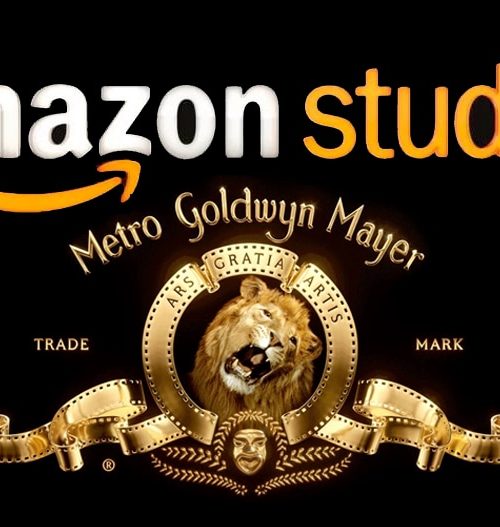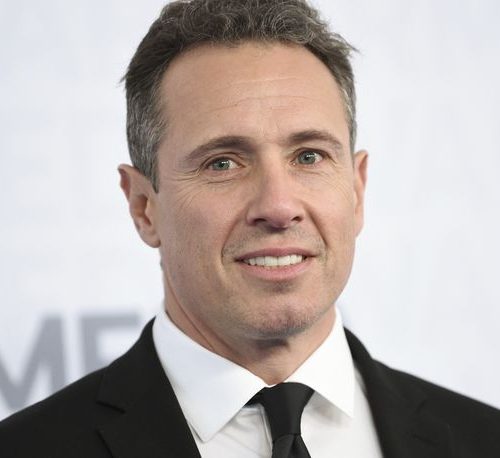BY ALEX WEPRIN | HollywoodReporter.Com
Troy Warren for CNT
NBCUniversal views the Games’ yearlong delay as “an advantage” since it now knows the platform’s user base, but even with a “big event” boost it has a long way to go to catch up to rivals.
One of the most anticipated events at the Tokyo Olympics, at least for U.S. viewers, will be women’s gymnastics, with Simone Biles looking to add to her 2016 haul of four gold medals. But if Americans want to watch Biles live, they will have to do so on NBCUniversal streamer Peacock.
NBC is betting that Biles and the rest of the U.S. gymnastics team, as well as the track and field teams and the men’s basketball team, can help Peacock rack up subscribers as athletes keep racking up medals, making live coverage of those events exclusive to the streaming service. “The plan was [for the Olympics] to be part of our launch platform a year ago. That obviously didn’t work out,” Mark Lazarus, chairman of NBCUniversal television and streaming, tells The Hollywood Reporter, adding that the company now looks at the delay “as an advantage.”
He continues, “We have a lot more knowledge about what is working and what is not working on Peacock. We were really flying blind a year ago; now we have a lot more data on our users, we know a lot more about them , and hopefully we can serve them better.”
Hence the move to exclusive live coverage of these key events, paired with exclusive streaming studio segments that are quirky and funny, as opposed to the more serious traditional TV broadcasts. And the time is right for a reset. In April, Comcast reported that Peacock had 42 million “signups,” though according to Bloomberg that translated into about 14 million monthly users and some 3 million paying subscribers (some users get Peacock’s premium tier for free through their pay TV provider).
Those figures would place Peacock far behind streaming leaders like Netflix (200 million subscribers), Disney+ (104 million) and Amazon Prime Video (“over 175 million,” per Amazon), and even smaller competitors like Paramount+ (combined with Showtime, 36 million subscribers). Of course, with Peacock’s strategy of a free base tier and focus on advertising, the company is in many ways pursuing a different model than most of its competitors, which rely more heavily on subscription revenue, and don’t offer free tiers.
“I think what we have seen with all of the streaming services so far is that you need some kind of a big event to drive people to sign up,” says Naveen Sarma, senior director at S&P Global. “Those ‘must-see’ events do drive people to subscribe,” Sarma adds. “What we saw in the last year or so with both HBO Max and Peacock is that they were missing these because of the pandemic.”
The Olympics also present an opportunity for NBCUniversal to bring new advertisers into its digital advertising ecosystem, a critical strategic focus for every major media and entertainment company. “It will be interesting to see how their team executes on it. Will they be able to fill all that inventory? Is it all package deals with TV? Or are they going out beyond the 200 biggest national TV advertisers and really growing the base?” wonders Michael Beach, CEO of marketing analytics firm Cross Screen Media. NBCUniversal says that Peacock secured more than $500 million in upfront commitments this year, with movie studios, technology, travel, financial services and pharmaceuticals among the biggest category buyers.
A year and a half ago, in January 2020, inside 30 Rock’s Studio 8H (the home of Saturday Night Live), NBCUniversal executives first unveiled Peacock to the world. Matt Strauss, chairman of Peacock and the company’s direct-to-consumer efforts, said they wanted to “give a pulse to the world of streaming,” one that was “timely and current” with the addition of NBC News and sports programming alongside a slate of original shows and library fare.
Then the pandemic hit, delaying production on originals and postponing the Olympics. Without that tentpole fare, Peacock leaned on its library of The Office, which aired its series finale eight years ago, hoping that the show’s success on Netflix would translate to new subscribers for Peacock. It also struck a deal with the WWE to merge WWE Network into its offering.
In June 2021, many of those same NBCUniversal executives once again gathered in Studio 8H, this time for a much smaller crowd, and with a more understated message. With production in full swing, the company is hoping it can make up for lost time.
For the Olympics do-over, Peacock will be more freewheeling and raw, with live coverage (mostly in the early mornings because of the time zone differences, with almost all events available for in-demand viewing after they air on TV or stream) as well as studio shows and original programming that skews toward the offbeat.
Stateside, Kevin Hart and Snoop Dogg will front a recap series reacting to highlights with quips. One of the signature shows, Tokyo Tonight, will be co-hosted by Cari Champion and Kenny Mayne. On Her Turf will focus exclusively on women’s sports.
Amber Ruffin, who hosts an eponymous late night show for Peacock, will be on the ground. “We’re going to take a lot of those elements, sketches and that silliness, and we’re going to take it to Tokyo,” Ruffin says.
The strategy “allows us to cater to the super fan with everything streaming all the time, but then you can come over to the network in primetime and get a highly curated show with the most popular sports,” says Molly Solomon, executive producer and president of NBC Olympics production. “Our job is to pick the best platform for each piece of content,” adds Lazarus.
Hence the decision to make those key sports live only on Peacock. But it’s also, in the words of Strauss, an “opportunity to learn.” Critically, while gymnastics and track and field will be free and entirely ad-supported, the basketball games will be exclusive to Peacock’s premium tier, which costs $5 a month.
If Biles and the gymnastics team are meant to get users in the door, then Kevin Durant and the basketball schedule are meant to get them to open their wallets. But once the medals have been awarded and the Olympic torch has been extinguished at the closing ceremonies, Peacock’s real challenge will begin.
For a service with global ambitions, the streaming wars are like a decathlon, with breadth just as important as depth — and, as in a marathon, a long-game strategy is more important than a fast start. “It is a question for everybody: You need to constantly provide justification for people to use your service,” Sarma says. “Peacock is going to have an opportunity to have a lot of new subscribers take a look at it. Can they keep them after the Olympics ends?”
In Other NEWS



































